MSNBC’s Kyle Griffin: Working for The Weekend
For 'The Weekend' producer Kyle Griffin, truth is a value to be prized, both in covering the news and living life authentically.

Kyle Griffin’s first foray into the world of news was serving as the anchor for his high school’s morning announcements program. But the then-teenager quickly realized that being an on-air personality was not for him.
“I saw at my local NBC affiliate that while the anchors and reporters were great, they were reading someone else’s words, and I wanted to be the person who wrote those words,” says Griffin. “I wanted to write the news.”
Griffin got his wish. A veteran of Seven Network Limited, NBC News Yahoo!, and the Albany, New York-based NBC affiliate WNYT, he’s currently the executive producer of MSNBC’s The Weekend, the network’s Saturday and Sunday morning news show, which launched earlier this year.
He is very much a storyteller, a talent the 37-year-old picked up from a previous stint working as a senior producer on MSNBC’s The Last Word With Lawrence O’Donnell, where he was part of the team that earned an Emmy nomination for Outstanding News Discussions & Analysis.
Working closely with The Weekend’s three hosts — Symone Sanders-Townsend, former chief spokesperson for Vice President Kamala Harris, Michael Steele, the former head of the Republican National Committee, and Alicia Menendez, a longtime television commentator — Griffin is party to multiple text chains and phone calls discussing ways to approach a story from different points of view, which guests to feature when telling those stories, and how to present facts in a narrative form that will enable viewers to put the news into broader context.
“My job as the executive producer is to help take what Alicia, Michael, and Symone are telling me, synthesize it, and give it to my team so that we can write something accurate and balanced, but also incorporates their competing viewpoints and their varied experiences when presenting an issue,” Griffin says. “My goal is, to the extent I can, to lay the groundwork in terms of how we write scripts, how we present stories, listen to their feedback, get the words on the metaphorical page, and then, once the hosts get on air, let them rip.”
Entering what promises to be a consequential election year, MSNBC has become go-to programming for political coverage, adding more viewers than any other cable network over the past year, and ranking second across all cable television networks, with an average audience of 814,000 viewers per minute. The network’s viewership has increased 16% in total over a year ago, and is up 5% in the 25-54 age demographic. Moreover, MSNBC was the most-watched cable network in the first quarter of 2024 among Black viewers, and has added more Black and Hispanic viewers over the past year than any of its competitors.
The network has also established a presence in the White House Press Corps and on Capitol Hill. Its personnel, both on-air and behind-the-camera, are expected to be in full force at the White House Correspondents’ Dinner, which kicks off at 6 p.m. on Saturday evening, April 27.
Just as MSNBC has gained success, so has The Weekend, which powered MSNBC to its first time-slot victory over CNN since the fourth quarter of 2022. The show, which premiered in January, has delivered the network’s best weekend morning ratings in three years.
“When MSNBC picked us as hosts [for The Weekend],” says Symone Sanders-Townsend, “they said, ‘We want to do this show with these people. Who is the EP that we think could work well for this new innovative project and program that we’re going to put on the air at this very consequential time?’ And Kyle was that person, and I think he is the right person for the job.
“I appreciate Kyle,” she continues. “He really makes getting up for The Weekend not only easy, but enjoyable. He’s a very dedicated executive producer, with an immense amount of passion and love for the show. I definitely think I can speak for all of us when I say that we…hit the jackpot with him.”

METRO WEEKLY: Tell us a little bit about yourself. Where did you grow up, and what’s your family like?
KYLE GRIFFIN: I’m originally from rural, suburban, upstate New York, outside of the Albany area. Growing up, very much a Leave It to Beaver-type family. I’ve got one younger sister. My mom and my sister are still upstate. My dad is a little all over the place. [He] spends some of his time in Florida, some of his time around Massachusetts. We were very much, I think, a very kind of suburban ’90s family when I was growing up.
MW: What did you do for fun growing up? Were you in sports? Theater? Were you interested in news as a teenager?
GRIFFIN: I was very much a theater kid. I think before I even came out, it was certainly a vehicle that helped me better understand myself and my identity. I was, to an extent, interested in the news.
I’ll say that my very first taste of the news was being the “anchor” for my high school’s morning announcements program. It was a tight, seven-minute show every day. It made me think about, in a very basic way, communicating with people, and it did spark something in me. It kind of really turned my life around at a time when I did not know what I was going to do after high school. I did not know what career path I was going to follow. I did not necessarily have a passion that I could say, “Yeah, this is what I want to do in 20 years.” And funnily enough, reading the morning announcements kind of introduced me to the world of news.
MW: How did you come to work at MSNBC?
GRIFFIN: I applied for an internship at MSNBC during my last semester of college. It was a very different world back then. It was in the middle stages of the 2008 presidential election. When I went into news — certainly while I was in college and when I started at MSNBC — I did not know that politics was going to be the thing that really drove me and drove my work, but you couldn’t help but kind of be surrounded by it.
It was peak Obama versus Clinton in 2008. Watching this kind of debate of ideas, especially between Obama and Clinton in the Democratic primary, was not like anything I had ever seen before in the news. I very much thought my time at MSNBC, if I was going to have time beyond an internship, would be [dedicated to] covering car chases and the weather and doing stuff that I had grown up with and only knew superficially to be what the news was.
The 2008 election really kind of turned it on my head and made me understand and appreciate what political journalism in particular could be, and the service that it was for those Americans trying to cast a ballot.
MW: How did you get interested in the political side of news, and what was it specifically that appealed to you about the Obama versus Clinton race?
GRIFFIN: I think the world was just enthralled by the idea of a Black man and a woman debating the ideas that would drive them. It was not an election that we had seen before in terms of identity. MSNBC, at that point, really did start to turn their coverage toward the stakes of this election, so to speak. The debating of the Iraq war. At the end of the 2008 election was when the recession began. It was not what I would consider a “typical” election like the kind I had only ever grown up with.
My family and I were not political junkies. I don’t think in my entire childhood we ever once debated politics at the dinner table. So it was kind of overwhelming to the senses, so to speak, to have this front-row seat to the election and to what it could mean for the future of our country.
I did get hired as a production assistant after my internship, and a couple of years into my time at the network, I started working with — and had a small role in helping to develop — PoliticsNation with the Reverend Al Sharpton. This was very much at a time when Trayvon Martin was in the news, Michael Brown was in the news. It really made me reassess what political journalism could be, and how it can inform and engage people.
MW: How does working at MSNBC compare to past jobs you’ve had in news? Is there a difference in the way that news is covered or in terms of the editorial decisions that are made behind the scenes?
GRIFFIN: I think the great thing about the network is that our president, Rashida Jones, and a lot of the executives up top, they do help us focus. In terms of focus, I mean, this is an election year. There are potentially four criminal trials that Donald Trump is going to face. Those are going to be a big part of the conversation, and they certainly do help us focus [our coverage].
I will say that I think what I enjoy most about MSNBC is that first and foremost, it is a collaborative network, where I never feel like I can’t say, “Hey, we have an outside-of-the-box idea. It’s not necessarily the news of the day, but I think that this is an important story to get out. I think that this is an important voice for us to highlight.” My bosses and the network writ-large, are, I think, very open to experimentation, very open to finding different ways to cover the same story.
We are very fortunate that The Weekend is the first show on the weekend, so we do get to set the agenda. But most of my time at the network has been on shows that end the day. And I know that you cannot cover the same story the same way when Morning Joe starts the day as when The 11th Hour ends the day.
What I have enjoyed most about MSNBC is that they say, “Yeah, you have to be able to find the difference. Yes, you are going to probably be covering the 2024 election this weekend, but you can’t cover it the same way that all the other shows are going to cover it. What can you bring differently to the table? What can you bring differently in terms of focus of the conversations? What can you bring differently in terms of the guests?”
I think we are very fortunate in Michael, Alicia, and Symone that they themselves bring so much diversity of views and diversity of background that it almost kind of naturally lends itself to being able to stand apart from the pack while still getting the news that anyone would expect you to cover when you’re talking about an incredibly consequential year in American politics.

MW: There’s understandably a lot of Trump coverage and a lot of Biden coverage, but there’s also a criticism — not just of MSNBC, but the media as a whole — that there’s an excessive focus on those two political figures. How do you balance covering the important news dealing with two larger-than-life figures and oversaturating the viewer to the point they want to turn the TV off?
GRIFFIN: I will say that I think we are very deliberate in how we plan our show. I don’t think anyone wants to watch two straight hours of us talking about Donald Trump, but Donald Trump is the presumptive Republican presidential nominee. He is a former president. He is also [in the midst of his] first criminal trial in New York, so there is a lot for us to talk about. And the same thing with President Biden. He’s the sitting president. He is the presumptive Democratic nominee. There is going to be a lot that we talk about him, and about Biden and Trump as it relates to the 2024 race.
But going back to that deliberateness point, it’s about making sure that there is a purpose to the stories that we are telling. We’re not just telling a Trump story because we feel obligated to, or because it might do well in the ratings. We’re telling a Trump story because it’s an important story to tell this week to our viewers.
To that end, we also take great pains to make sure that we are not just covering those kinds of stories that can have a bit of saturation within the market. We want to cover stories that aren’t necessarily getting as much light, that aren’t necessarily getting as much broadcast time, because we want to leave viewers with a very well-rounded understanding of the news after two hours.
And yes, while covering the two likely candidates for the 2024 election is very important, we are very aware that to create a dynamic, informative show, you have to find the other stories that aren’t getting enough airtime, both those that people are talking about and those people aren’t talking about as much.
MW: When you’re thinking about who comes on air and speaks with your hosts, are there any traits, skills, or backgrounds you’re looking for? How are you seeking to cultivate that diversity of voices, in terms of on-air guests?
GRIFFIN: It’s a big focus on our show to have a diversity of voices in our guests. Certainly, there’s a section of guests who are the experts. Right now, on my other computer monitor, I am looking at the NBC Trump trial live blog. When we’re going to be talking about Donald Trump and his presidential immunity case, we want people who are not only legal experts, but ideally have experience in Manhattan courtrooms, or people who potentially have experience arguing before the Supreme Court.
But on a different level, and something that we really focus on for our show is making sure, again, that we are speaking to people who have direct connections to the stories we are telling.
Last week, we had Arizona State Senator Eva Burch on the show to speak about the near-total abortion ban in Arizona. We wanted someone who had shared her own experience struggling to get reproductive access in the state. We wanted someone who was a legislator in the state.
Because when you can have someone who is either directly [tied to] what is going on in the news, someone who is a decision-maker, or someone who has a stake in that story, not only are you going to let the viewers have a much deeper, more well-rounded understanding of the story, but I think people are going to take more away from that when they leave the show.
If you are just always talking to pundits, you are limiting yourself and, I think, to an extent, limiting the experiences that the viewer can take away.
MW: How do you balance working for a news organization and maintaining neutrality, with expressing your views or personality on social media platforms like X?
GRIFFIN: To a large extent, I’ve got to say that I see my role as very much an extension of what I do at MSNBC. We are on the air on Saturdays and Sunday mornings only, but the news never sleeps. The news never stops. What I’ve really found on X and on Threads is that social media gives me an opportunity to keep people informed when I do not have a show that is on the air.
In terms of being neutral, I think that has always been baked into my blood. As a journalist and writer, producer behind the scenes, your role is to get the news out there and then let others, in a sense, decide what they think about it. Certainly, on a show like The Weekend, where we have news and analysis, we help people understand, and I also hope that what I do on social media is to help people understand, give people appropriate context, make sure that they have a fully-formed understanding of what is going on.
But I’ve never seen my role as saying, “Here’s how you should think,” or, “Here’s what you should think.” For me, it is, “Here is something that you should think about. Here is something that you should be considering when you go to the ballot box or when you are watching a presidential debate.”
My goal always is to arm people with facts, arm people with information, and then let them do what they want with it. Really, I see my role both behind the scenes at MSNBC and on social media as one that is first and foremost designed to inform.
MW: As an openly gay man, there are times when your show will approach or discuss LGBTQ issues. In past decades, especially, we’ve heard criticism from LGBTQ advocates criticizing, for example, the coverage of the AIDS epidemic, or, more recently, the coverage of transgender issues and the lack of centering transgender voices. How do you, as an LGBTQ person, approach how your show tackles those issues?
GRIFFIN: To kind of piggyback off of what you said, I think first and foremost in my mind is past criticism — understanding that in the ’80s, the coverage of the AIDS epidemic was very one-sided, very biased, very misinformed. And throughout the decades, there have been other examples in other situations where LGBTQ issues have been centered and coverage has not lived up to the standards to which we should hold it and to which I hope we do now hold it.
So that past criticism is always in my head, yes, on LGBTQ+ issues, but I think the same could be said for reproductive rights. I think the same thing could be said for race and equality. I very much take to heart that criticism, and I think reflect inward whether I am presenting a story, or my hosts are presenting a story as it should be presented.
Another big part of that for us and for me personally, is finding the right voices to have the conversations with. I’ve been very fortunate at the network. For the last three years, I’ve done Pride specials at the network, and my main goal with all of those specials has been to think about the voices we are lifting up.
How are we lifting up those voices? How are we leaning on and learning from their lived experiences? If we are talking about trans issues, I need trans people to be at the center of that conversation. I need everyday trans people. I need trans legislators, like Zooey Zephyr or Danica Roem or Sarah McBride. Sometimes I need people who aren’t trans themselves, but have trans family members or have history in the LGBTQ space as advocates.
Again, so much of what we do on The Weekend, especially, is conversation-driven, so the best way that I can be of service to the viewer in helping them understand LGBTQ issues is to center the right voices in those conversations. This is a slightly tangential example, but I would not want to solely put men at the conversation of reproductive rights issues. I need to be aware of the people I’m putting on and how they reflect the obviously very varied and diverse views of the LGBTQ+ community.

MW: You were a GLAAD Award recipient for “Outstanding TV Journalism – Long Form” for your work on the MSNBC special “Pride of the White House” in 2022. How did it feel to be recognized for your work, and do you feel any responsibility to the LGBTQ community as a past GLAAD award winner?
GRIFFIN: It was a great honor to get that award. I do feel responsibility. I think, in a very professional sense, I always feel a responsibility to deliver fair, accurate, informed news, but certainly on LGBTQ+ issues and having been recognized for how I have covered those issues, it is incredibly important to me to tell stories about this community with care, with respect, with dignity.
I would like to believe that one of the reasons why Jonathan Capehart, who was the host of those Pride specials, and I were recognized for our work is that we had not only a sensitivity to, but an appreciation for, the stories that we were telling.
We knew that there was a certain responsibility in telling the stories of trans individuals, of gay, lesbian, bisexual, queer individuals. These people who are often marginalized, are often maligned, don’t necessarily always get the space and time to share their experiences, to tell their stories. It is deeply important to me to get it right, to not shortchange them.
I think at the end of the day, it is about making sure that their stories get out there so that other people can be informed. So that other people who don’t necessarily understand the LGBTQ+ community, or who don’t have similar lived experiences, can feel like they have come away with a better understanding of our community.
My role is to not say, “You have to agree with everything this person is saying, you have to change your opinion.” Hopefully, I have helped viewers have a deeper, better informed, more well-rounded understanding of our community, and that’s really the responsibility that I feel.
MW: With respect to your own coming out process, what was that experience like and what was your family’s reaction to it?
GRIFFIN: It was certainly a process. I will say that on a family level, I was incredibly fortunate that I had a mother and a father and a sister who embraced me, and who loved me, and wanted the best for me.
On a macro level, it was a challenge to come out. I came out a few days before my 18th birthday, 20 years ago this June, in 2004. I came out the same year George W. Bush was campaigning on a constitutional amendment to ban gay marriage. I don’t think I could appreciate until many, many years later, the broader notion within our community that coming out is an inherently political process, because I didn’t realize, until I had some distance from it, that coming out wasn’t just a personal decision for me.
At the time, hatred was everywhere. Politicians were saying that people like me were “other” — people to be denied basic rights. I was afraid that, by coming out, I was defying what most of the American public felt about me as a gay man and how that public wanted me to exist. I was afraid that I wouldn’t be accepted, that I wouldn’t be able to live fully or truthfully because people didn’t want that.
You have to remember, when I was 17, I didn’t think LGBTQ people had much agency, and I certainly didn’t understand the agency that I, myself, might have had. So coming out was a political act for me. Yes, I was certainly anxious, on the micro level, about what my family might think or say when I came out, but much more so, I had to contend with the world around me. And when I decided to come out, I was defying those people who wanted to limit me — and unfortunately, to some extent, still do — simply for how I was born.
I can chart over many, many years, how I have continued to challenge the coming out process for myself. When I was 17, going on 18, and had come out to my parents, I could have said, “Well, that’s it. Great. Ticked that box. Cleared that big hurdle.”
But what I realized was it’s one thing to come out, and it’s another thing to be comfortable with yourself as an out queer person. It’s also another thing to be able to embrace that in your professional life. I’ve been very fortunate that MSNBC has always embraced my queerness, but also to be an out, public-facing man with a presence on social media.
I think any member of the LGBTQ community who has gone through the coming out process can attest probably that it is a process. It is not a one-time declaration. You come out again and again and again, and the best part of the experience for me is that every time I feel more like myself, I feel more like I’m living my truth, I feel more like I am living the life that I should be living.
And I am very fortunate, I know, to be able to say that in a time when LGBTQ issues are certainly at the forefront of the political conversation again, to say the least.
MW: Are there any principles or values that are important to you, not just in your job, but your life?
GRIFFIN: One principle that has certainly always driven my work, but that I feel like, in recent years, has taken on new meaning for me in my personal life, is truth. Obviously in journalism and in news, our goal is to be truthful, to be honest, to report “just the facts,” so to speak.
But in my personal life and certainly in my evolution as a queer man, I think I’ve kind of found truth to how I see myself, how I present myself, how I live day-to-day. And while I came out many, many moons ago now, I think what I’ve realized over the years is that living your truth — living fully and honestly — there is a big evolution there.
Even though I came out 20 years ago now, I could say when I was 21, “Yes, I live my truth. I’m an out gay man, here’s who I am.” But I think what I have realized over the years is that there are still barriers up, there are still walls up. And to live with radical honesty and radical truth, it’s one thing to be able to do that on air when you are just saying, “Here are the facts, here’s a very specific set of parameters. Let me just share that with the world.”
It’s another thing to share yourself personally with the world, and so I think something that I really value, a quality that I really aspire to have in my day-to-day life is to live truthfully.
MW: What would you say are some personal foibles or weaknesses that you’re working to fix?
GRIFFIN: Without this sounding too much like a bad job interview answer, I think the news industry can often be so fast-paced, so ever-changing that you are never going to be able to produce perfection every day, and that can be very hard. You want to give viewers all of the news, all of the news, all of the time.
And I would love to perfectly present every story all of the time, but there’s always going to be stuff left on the cutting room floor. There are always going to be stories that don’t make the cut. There are always going to be voices that don’t get on.
My goal is to my best ability try to dust off that perfectionism and say, “Okay, we can’t tell this story with this person. That person’s not available.” Or “The pieces of this puzzle aren’t coming together.” My job as the executive producer is to say, “How else can we do this that still is delivering a service to the viewer? How else can we do this so that I am doing my job, I am doing a service for our audience and not kind of getting wound up in my overly perfectionist tendencies?”
There are always going to be things that go wrong. We are live television, but the thing that I always try to keep in mind is you’ve got to roll with the punches. There are always going to be mistakes. There are always going to be weird live shots, there’s always going to be a prompter that goes down, but it’s really how you react to those mistakes and those issues that matter at the end of the day. Not that the mistake was made itself. If we made a factual error, we correct it, we apologize, and we correct the record. If a camera goes down, can we get another camera? Do we go to commercial break? It’s how we react in the moment that really is what I try to keep in mind at the end of the day.
MW: Who are some of your personal heroes, icons, or people you look up to?
GRIFFIN: There are many. I think in the news space, I apologize for how cliché this probably sounds, but I do think that Rachel Maddow is one of the best in our business at doing what I was just talking about, at being able to present a story to viewers that they have never heard before with the same facts that I am operating with every day. Rachel knows how to touch viewers and speak to them and leave them with information at the end of the day that they did not start with. I think that she has a natural gift at being able to tell stories and being able to have the viewer take something away from that storytelling.
I think outside of the news, there have been people in my life, in ways big and small, who I would call, for lack of a better term, the everyday queer people I’ve met, who are very much role models to me. It has been a process for me to live my life truthfully and fully.
That’s not to say I was lying or hiding parts of myself, but I think we all naturally have barriers between our public and private lives, how we operate among our friends as opposed to when we’re alone at home. And I think, certainly, especially some friends in the trans community, have shown me that they can only live radically open and honestly.
That is something that I really take to heart, seeing how my friends navigate the world, their experiences, and hopefully, I can have some of their bravery, some of their honesty, rub off on me and how I live my life.
The Weekend airs every Saturday and Sunday from 8 to 10 a.m. on MSNBC. For more information, visit www.msnbc.com/the-weekend.
Follow Kyle Griffin on X at @kylegriffin1 or on Instagram at @kylegriffin.
Support Metro Weekly’s Journalism
These are challenging times for news organizations. And yet it’s crucial we stay active and provide vital resources and information to both our local readers and the world. So won’t you please take a moment and consider supporting Metro Weekly with a membership? For as little as $5 a month, you can help ensure Metro Weekly magazine and MetroWeekly.com remain free, viable resources as we provide the best, most diverse, culturally-resonant LGBTQ coverage in both the D.C. region and around the world. Memberships come with exclusive perks and discounts, your own personal digital delivery of each week’s magazine (and an archive), access to our Member's Lounge when it launches this fall, and exclusive members-only items like Metro Weekly Membership Mugs and Tote Bags! Check out all our membership levels here and please join us today!










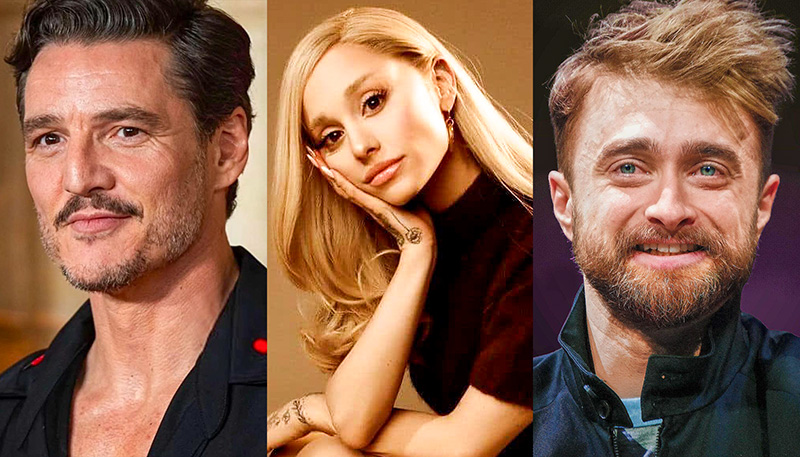
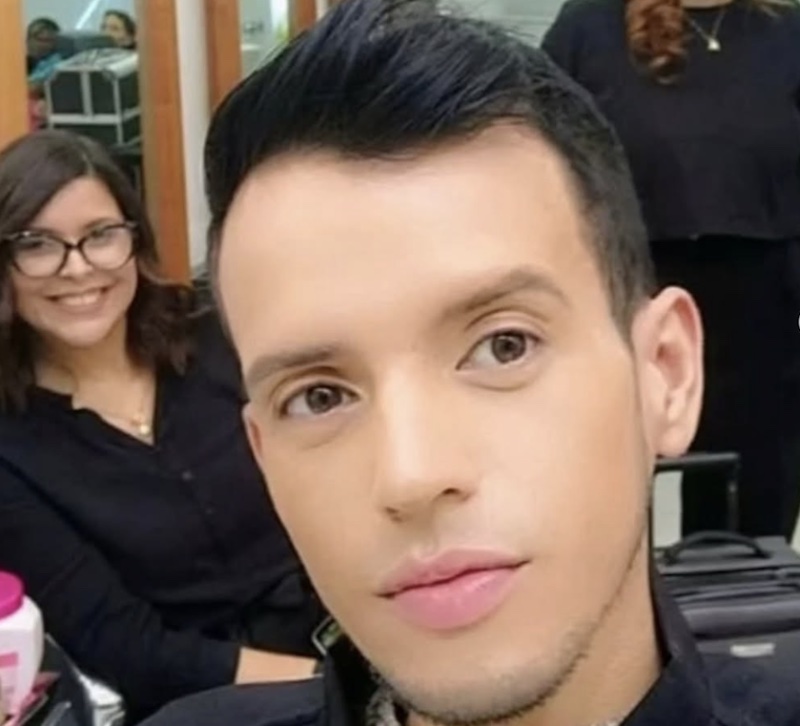













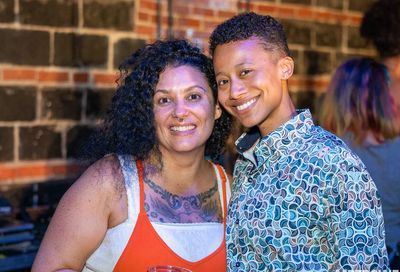
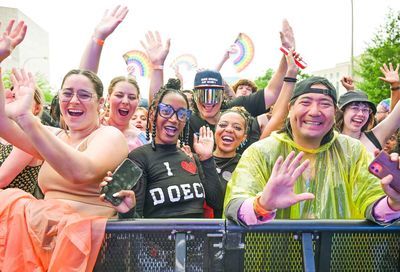
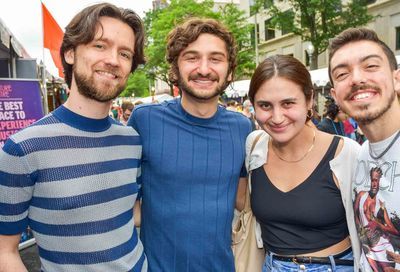
You must be logged in to post a comment.